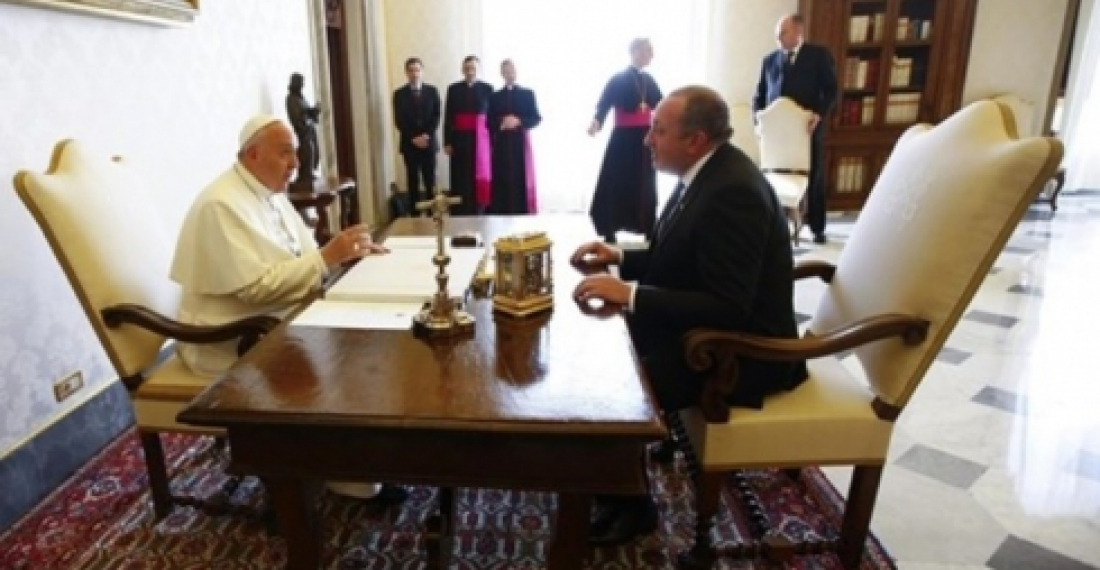The President of Georgia, Giorgi Margvelashvili, on Fridat was received by Pope Francis, the Head of the Roman Catholic Church, at Vatican City. Later the President also met with Msgr. Antoine Camilleri, under-Secretary for Relations with States, at the Secretariat of State.
A statement issued by the Holy See Press Office called the discussions "cordial", and said the two men expressed their appreciation of the development of bilateral relations, and spoke about various themes of mutual interest, with particular reference to the positive contribution of the local Catholic community in the fields of charitable activity and education.
Attention then turned to concerns regarding the tensions that affect the region and, with emphasis on the importance of full respect for international law, the hope was expressed that every solution may be sought through peaceful negotiation between the interested Parties.
Finally, mention was made of what has recently been achieved by Georgia regarding its own role in Europe.
source: commonspace.eu with Vatican Radio
photo: Pope Francis with the President of Georgia at the Vatican on 10 April 2015 (picture courtesy of vatican Radio).







